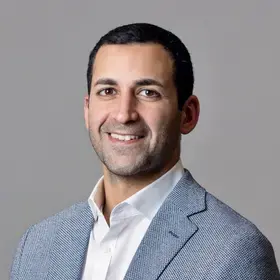Molly Lucas ('16) says, “Bioethics is a field that really gives you the opportunity to look beyond what is directly in front of you.”
A medical researcher, she began her journey as an undergraduate at Yale, where she studied psychology with a focus on neuroimaging research. She says, “My undergraduate thesis involved an fMRI study working with children and adolescents with Autism Spectrum Disorders (ASD). Especially in light of the recent changes to the diagnostic criteria for ASD, I found myself considering the broader implications of how we conduct research and medicine – especially how it impacts our patients’ lives.”
She pursued a graduate degree in Bioethics at Columbia University and will graduate in 2016. We spoke with her about her passion for Bioethics, her experience in the program, and her aspirations in the medical field.
Why did you consider the program?
Columbia gave me the opportunity to complete both the Postbaccalaureate Premed Program and the M.S. in Bioethics degree concurrently (I finished the Postbac Program last spring). The two programs balance well, and I was able to gain skills in traditional core science classes and also approach current biomedical issues through ethical, philosophical, historical, and legal perspectives. The final product is a multifaceted view of research and medicine.
What was the most valuable element of the program for you, and why?
The students in the program are definitely some of the greatest strengths. The courses are seminar style, which facilitates a lot of discussion amongst the people in the program. Everyone has very diverse backgrounds, which means that for every topic you discuss, there’s an expert in the room who can give some insight.
A key part of bioethics is the idea that two rational people can disagree on an issue, often depending on their weighting of personal values. The way the program is structured allows students to learn to identify and integrate different lines of thinking for a given case.
Were you working while you were an M.S. candidate? If so, how did you apply the lessons from your program to your role?
I work as a Research Associate up at Yale studying addiction using Positron Emission Tomography (PET). Bioethics places what I’m doing within a much broader context of society.
In terms of addiction, there are major ramifications for these people (public policy, social stigma, legal consequences) that stem from how addiction is defined by researchers and physicians. With neuroscience technology developing so rapidly, another main interest of mine is looking at how these tools and devices impact patient diagnoses and care, research ethics and practices, and societal understanding of experimental findings.
How has the program improved your professional life?
The Bioethics graduate program has given me another avenue to address aspects of research and medicine. There are opportunities to attend institutional review board meetings, ethics consultations, and committee meetings at hospitals throughout the city; the coursework prepares us well to discuss real cases at a professional level. As someone who wants to stay in research, writing for academic journals is also very relevant to me. I’ve been able to work outside of classes on independent projects with mentors to hone my skills at professional writing about issues of interest to me.
What's next for you?
I’m going to continue working in research, and hopefully get a Ph.D. in neuroscience next. My main interests are working with Posttraumatic Stress Disorder and Traumatic Brain Injury. I want to continue my bioethics writing in parallel to my research as a way to continually evaluate how research impacts patients and developing neurotechnology.
Any advice for prospective students?
Whatever your background or career goals, I think the program is a great fit for anyone who wants to dive more into bioethical issues. I was able to focus the majority of my papers on topics relevant to my career while simultaneously learning a lot about issues that I had little to no background in.


